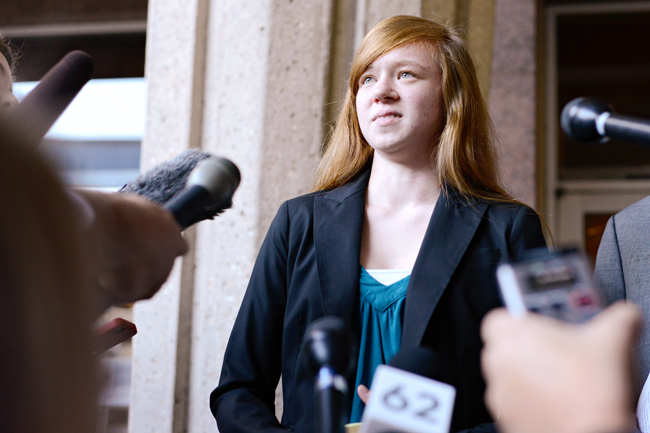A long-winded legal battle over race-conscious admissions between the University and a rejected applicant may soon be decided, legal experts say, providing clarity about the role of affirmative action in higher education.
The Supreme Court did not rule on affirmative action in higher education in 2013 when it first reviewed plaintiff Abigail Fisher’s case, sending it back to the 5th Circuit Court of Appeals. In June, the nation’s highest court announced it would rehear the case and potentially hand down a final decision on the subject.
“There was no reason to punt the last [time] it was up, so it seems somewhat ludicrous that they’re going to do it again,” UT law professor Lino Graglia said. “They can say it’s unconstitutional. Let that be clear. Or they can say it’s constitutional. Let that be clear. They’ve done neither so far.”
Fisher, who is white and did not qualify for automatic admission under the Top Ten Percent Rule, was not accepted to the University in 2008. She then sued UT for allegedly denying her application because of her race, leading to a lengthy legal battle that has crisscrossed the court system.
The Western District Court of Texas and the 5th Circuit of Appeals both sided against Fisher’s case, which positioned it for argument before the Supreme Court in 2013.
But the Supreme Court resolved to return the case to the 5th Circuit court, claiming the appeals court had failed to apply “strict scrutiny” to the University’s race-conscious
admissions policy. In July 2014, after further review, the appeals court again ruled UT’s admissions policies constitutional.
Following the 5th Circuit’s latest decision, Fisher and her lawyers petitioned the Supreme Court to rehear the case, writing that it has “only gained importance.” In June, the Court announced it would accept the case again.
UT President Gregory Fenves released a statement in June, saying “[UT’s] admissions policy is narrowly tailored, constitutional and has been upheld by the courts multiple times.”
The University has seen several high-profile admissions cases in its history, and the activity over the last 20 years has made large amounts of data available that reflect several sides of the admissions spectrum: considering race, not considering it at all or considering it in conjunction with a Top Ten Percent-type rule.
“We could very much be in a position where UT’s response to the cases in the ’90s becomes something that is a model for people going forward,” said Lynn Boswell, a filmmaker who produced a 2013 documentary chronicling race and admissions at the University. “That’s a really interesting thing to look at: UT being a pioneer in a lot of these cases or being at the leading edge of a lot of these cases. UT’s response to a lot of these issues could serve the same purpose.”
The Supreme Court has yet to announce a specific date to hear Fisher’s case, and it’s unlikely there will be a final word before the end of the year — landmark decisions, like the one to allow same-sex marriage earlier this year, typically wait until the end of the term.
Graglia said because the court is made up of four liberal justices and four conservative justices, the decision will rest mainly on one person — Justice Anthony Kennedy.
“[Kennedy] claims on the one hand that he’s strongly against race discrimination in some important cases,” Graglia said. “It really depends on what he’s going to do.”
Edward Blum, who directs the Project on Fair Representation, an organization that has provided funding for Fisher’s case, said the Supreme Court’s decision will likely close out this legal battle, but cases surrounding race and education likely won’t be going away anytime soon.
“Wherever you stand on the issue, the energy that’s put into these cases on every side of this issue really shows that education is important,” Boswell said. “And access to education and fair access to education is important to people. People define what is fair differently.”





















